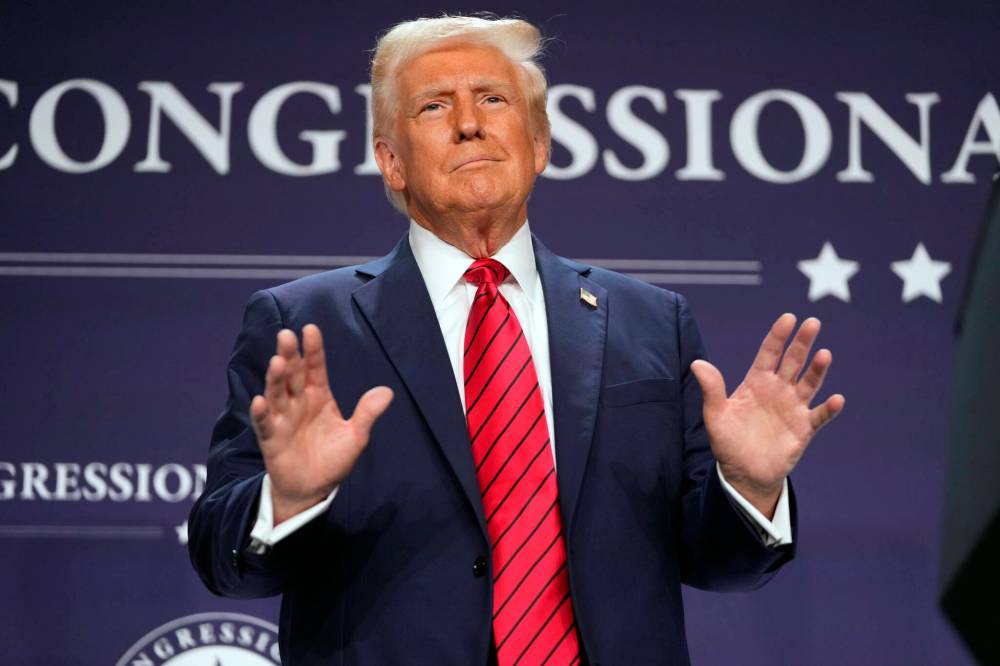Finding new markets and mitigating U.S. tariffs
Advertisement
Read this article for free:
or
Already have an account? Log in here »
To continue reading, please subscribe:
Monthly Digital Subscription
$1 per week for 24 weeks*
- Enjoy unlimited reading on winnipegfreepress.com
- Read the E-Edition, our digital replica newspaper
- Access News Break, our award-winning app
- Play interactive puzzles
*Billed as $4.00 plus GST every four weeks. After 24 weeks, price increases to the regular rate of $19.95 plus GST every four weeks. Offer available to new and qualified returning subscribers only. Cancel any time.
Monthly Digital Subscription
$4.99/week*
- Enjoy unlimited reading on winnipegfreepress.com
- Read the E-Edition, our digital replica newspaper
- Access News Break, our award-winning app
- Play interactive puzzles
*Billed as $19.95 plus GST every four weeks. Cancel any time.
To continue reading, please subscribe:
Add Free Press access to your Brandon Sun subscription for only an additional
$1 for the first 4 weeks*
*Your next subscription payment will increase by $1.00 and you will be charged $16.99 plus GST for four weeks. After four weeks, your payment will increase to $23.99 plus GST every four weeks.
Read unlimited articles for free today:
or
Already have an account? Log in here »
Hey there, time traveller!
This article was published 01/02/2025 (350 days ago), so information in it may no longer be current.
Canada’s premiers and the federal government can be forgiven for trying — and at the moment, most likely failing — to stop U.S. President Donald Trump’s 25 per cent tariffs on exports from Canada to the U.S.
It was never about border security. Nor, really, about trade deficits.
It might well be about the windfall Trump expects to get from levying what could effectively be called a tariff sales tax on American consumers so that he can deliver promised income-tax cuts to his supporters.

Mark Schiefelbein / The Associated Press
U.S. President Donald Trump
Trump’s love for a fractured economic theory that manufacturers, not consumers, end up paying for the cost of import tariffs, and his belief that tariff is “the most beautiful word in the dictionary” was always going to rule the day.
It will be interesting to see what happens to Midwestern farmers who need potash-based fertilizers — 46 per cent of Canada’s potash exports go to the U.S.
But that’s only half the story — the other half is that the U.S. gets 87 per cent of its potash from Canada. And agriculture trade publications have already predicted that the cost of a 25 per cent tariff will wind up with fertilizer users, not with Canadian companies that produce the potash.
And the growing season didn’t have to be upended by Trumpian executive orders.
We already have signed trade deals with the United States, deals that were in fact signed while Trump was last president. (In case he doesn’t remember, he himself lauded them as “the fairest, most balanced, and beneficial trade agreement we have ever signed into law.”)
Clearly, they’re not worth the paper they are printed on — and we have to expect that anything Trump says now is just as transitional into whatever else he decides to do at any time.
There is no longer a separation of powers in the United States, there are legitimate doubts about the independence of its judiciary, and there is no guardrail in the legislative branch.
Trump’s own business record gives no comfort, either.
The current commander-in-chief, unfortunately, has a long record as a commander of cheat.
There are scores of businesses that have come forward with their stories about having signed contracts for work with Trump businesses who end up being paid a fraction of what they’re owed, and having to eat their losses, sometimes at the cost of their own companies. Paying pennies on the dollar has been a Trump corporate trademark,
And that’s not likely to change. Some may see that as a shrewd business tactic: truth is, it’s both cheating and lying.
We should expect nothing different in the future.
Canada’s goal now should be to make the most of a horrible situation — dealing with a trade war we didn’t start, with a neighbour with great powers, is a daunting situation. We will most likely answer with tariffs, while businesses on both sides of the border clamour for the kind of stability and order they need to make business and investment decisions.
But most importantly, we have to diversify our markets as quickly as possible, so that we no longer find ourselves in this situation again — even after Trump moves on. Take potash: it’s a product needed in China and India, and also Brazil. Let’s sell it somewhere else.
Think about this: even if the federal government and the provinces find a way to avoid the new tariffs or get them removed, while in the short term we might be in a better position, we will not be in a safer one.
Because what President Donald Trump committed to yesterday has absolutely no connection to what he will do tomorrow.
And when you make a deal to pay a blackmailer, unfortunately, you’ll find out that you’ll being paying for your entire life.



